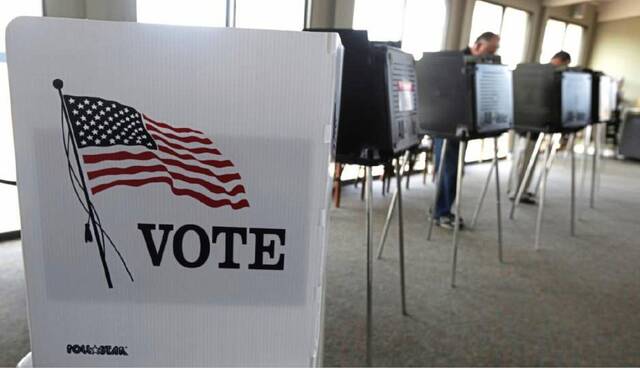Virginia voter purge blocked by U.S. judge ahead of election
A federal judge in Virginia halted what she concluded was an unlawful, systematic purge of names from the state’s voter rolls ahead of the Nov. 5 presidential election in a win for the Biden administration.
The ruling Friday came after the U.S. Justice Department sued Virginia and Alabama in the final weeks of the campaign, arguing they violated a 90-day “quiet period” leading up to Election Day intended to protect eligible citizens from being denied their right to vote.
U.S. District Judge Patricia Tolliver Giles’ ruling means an estimated 1,600 people will have their voter registration restored in Virginia. But the judge said those voters will be notified they are ineligible to vote if they are not U.S. citizens.
Virginia appealed Giles’ decision to the 4th U.S. Circuit Court of Appeals shortly after she announced it.
Virginia isn’t considered one of the battleground states in the race between former President Donald Trump and Vice President Kamala Harris. Polls show Harris leading by a significant margin in the state, while the national race shows a deadlock in much of the polling.
Yet this is one of the few instances in which the Justice Department joined the preelection legal fray, drawing national attention. During a recent interview with Bloomberg News, Trump said he hadn’t “gotten over” the department filing the case. In public remarks Friday, Trump said the ruling was an “outrageous decision.”
Giles, who sits in Alexandria, Va., announced her ruling Friday, saying there was a “clear violation” of the federal quiet period.
In a statement, Virginia’s Republican Gov. Glenn Youngkin defended his pre-election use of the law, saying it required “certain procedures to remove noncitizens from the voter rolls, with safeguards in place to affirm citizenship before removal — and the ultimate failsafe of same-day registration for U.S. citizens to cast a provisional ballot.”
Judith Browne Dianis, executive director of Advancement Project, one of the advocacy groups involved in bringing the case, said in a statement “Virginia’s desperate attempt to undermine the will of the people and sow distrust in our elections was foiled.”
Giles pointed out the challengers had identified instances of eligible voters whose registrations were wrongly canceled after doing an initial review of data from the state this week. The judge asked, not directed at any lawyer, “How many more are there?”
The judge rejected the state’s position that officials had good reason to believe people weren’t U.S. citizens if they didn’t take steps to challenge their removal from voter rolls after being notified. The judge found that process wasn’t the same as the state doing its own investigation to confirm a person’s citizenship status.
“I’m not dealing with beliefs. I’m dealing with evidence,” she said.
Giles’ order marks the second favorable ruling for the Justice Department this month. On Oct. 16, a federal judge in Alabama blocked state officials from invalidating the registrations of more than 3,000 voters based on suspicions that they aren’t U.S. citizens. The judge said in her order the secretary of state had acknowledged the list included thousands of U.S. citizens.
The U.S. National Voter Registration Act prohibits states from carrying out programs to “systematically” remove ineligible voters from the rolls within 90 days of an election.
On Aug. 7, which was 90 days before Election Day, Youngkin signed an executive order requiring the state’s election office to certify it had a process to update voter rolls daily, including removing people who hadn’t confirmed their U.S. citizenship with the Department of Motor Vehicles.
A coalition of advocacy groups sued the state first, and then the Justice Department followed with its own case. The two were consolidated before Giles.
Remove the ads from your TribLIVE reading experience but still support the journalists who create the content with TribLIVE Ad-Free.

